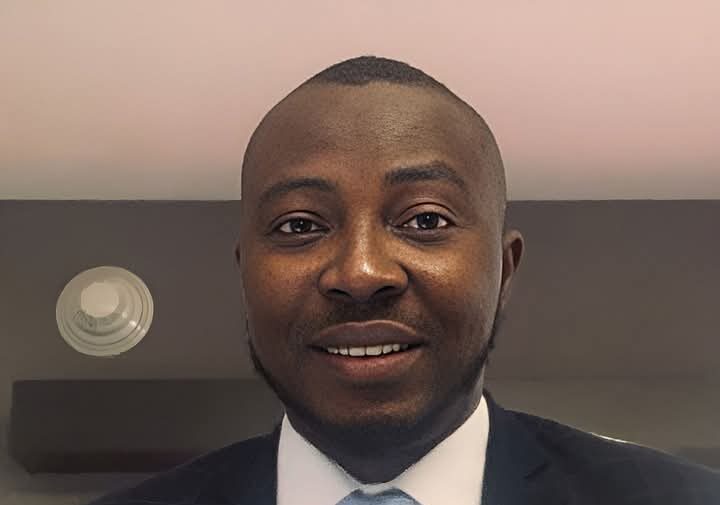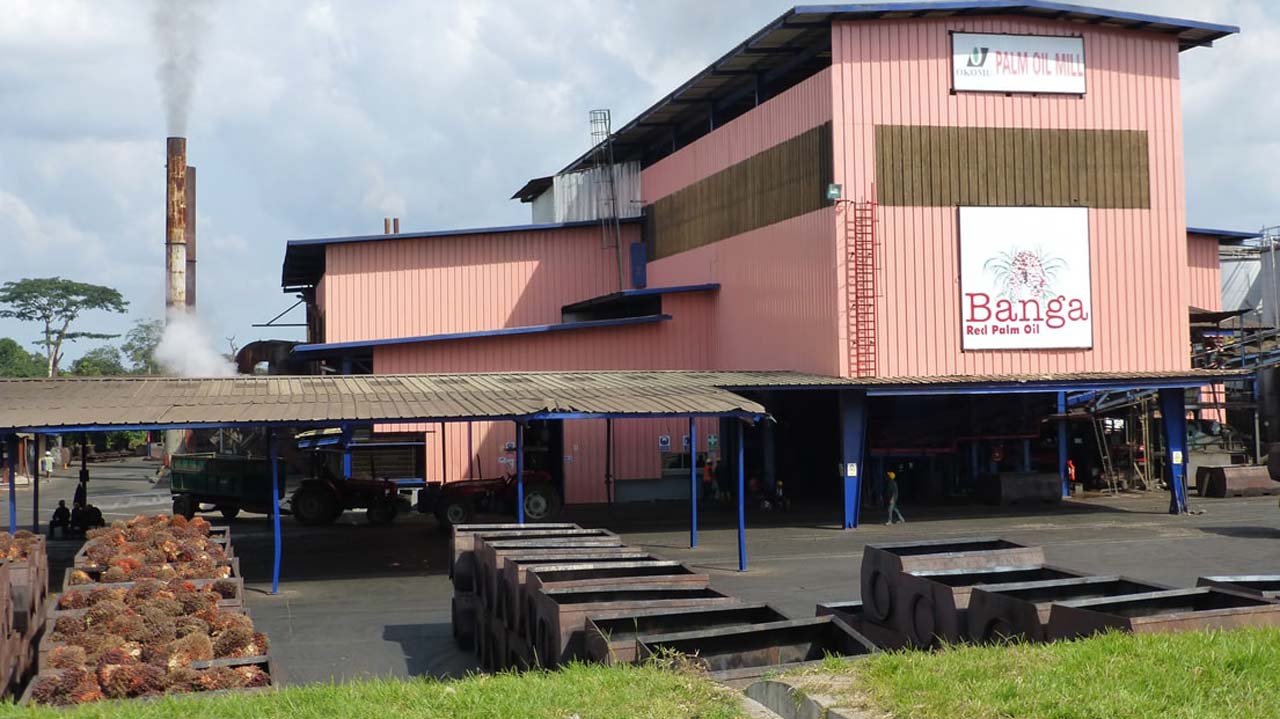Nigeria’s 200 million youthful, entrepreneurial citizens can vault the nation from demographic promise to global competitiveness if bold, synchronised reforms now turn their talent, trade, and technology into a seamless, predictable engine of prosperity. This was the submission of the Chief Executive Officer of DHL Express, John Pearson in an interaction with Festus Akanbi on the sidelines of a media event- Global Trade Shifts- Spotlights Africa, and launch of DHL’s 2025 Global Connectedness Tracker in Johannesburg, South Africa, last week
Figeria sits on a rare confluence of promise — a young, restless population, vast entrepreneurial energy, a swelling workforce, and a strategic position at the heart of Africa. Yet, in the view of John Pearson, Chief Executive Officer of DHL Express, the country’s demographic blessing will only translate into prosperity if the right policies, partnerships, and infrastructure align to unlock its immense potential.
Speaking in Johannesburg at the unveiling of DHL’s 2025 Global Connectedness Tracker, Pearson told THISDAY that Nigeria’s future will depend on how it converts its people into productivity.
“You have over 200 million people, that’s not a challenge, it’s a superpower,” he declared. “But for that power to work, the systems, from education to logistics and regulation, have to move in the same direction.”
Human Capital: The Real Goldmine
At the centre of Pearson’s argument lies Nigeria’s human capital. With over 200 million citizens, half of them under 30, the country stands on a demographic goldmine. Pearson explained that DHL’s experience in Nigeria has shown the quality and competitiveness of local talent.
“We’ve been able to attract, retain, and grow fantastic Nigerian professionals,” adding that “Some of them have gone on to lead teams in other African countries. That tells you the calibre of people you have here.”
He pointed to DHL’s Certified International Specialist (CIS) programme, a leadership and training model applied consistently across all its global operations. “In Nigeria, our people go through the same training and development as their colleagues in Germany or India. It’s not watered down. That’s how we build global competence locally.”
However, Pearson noted that the wider Nigerian economy has yet to connect education to market realities. He emphasised that reforms must bridge the gap between academic training and industrial demand.
“The world of logistics, trade, and digital commerce is changing so fast. Nigeria’s universities and vocational institutions need to reflect that,” he said, pointing out that “We need to revive technical and apprenticeship programmes, bring industries into classrooms, and ensure graduates have practical skills, not just certificates.”
The DHL boss also underscored the importance of retention. “The continuous brain drain is a symptom, saying people leave when they can’t find stability or predictability at home. Salaries matter, but so do security, infrastructure, and a clear sense of direction.
Trade, Borders, and Bottlenecks
Few companies understand the pulse of trade like DHL. Pearson’s perspective on cross-border efficiency is blunt: Nigeria’s logistics arteries are clogged, and it’s costing the nation dearly.
“As a logistics company, our goal is to make the movement of goods seamless,” he said. “We work closely with customs; in some cases, officials even operate from our premises to speed up clearance. But many of the deeper challenges are systemic. No private company can fix them alone,” he said.
From congested ports to crumbling roads, Nigeria’s trade routes continue to be a source of frustration. Clearing goods from Apapa or Tin Can Island can take days, sometimes weeks, adding heavy costs that erode competitiveness. Pearson believes a “national logistics overhaul” is overdue.
“What Nigeria needs is simplicity and consistency,” he explained. “Simplify customs procedures, harmonise agency roles, digitise documentation, and you’ll see trade volumes and investor confidence rise almost immediately.”
He advocates the full activation of inland dry ports to relieve Lagos of its overwhelming cargo burden, as well as the creation of logistics hubs and cold-chain networks nationwide.
“Improving rail and road connectivity to neighbouring countries will also let Nigeria take real advantage of the African Continental Free Trade Area,” he added.
E-Commerce: The New Frontier
In Pearson’s view, the digital revolution is redefining logistics as much as it is redefining business. “The click-and-ship culture is exploding,” he said. “We’re helping Nigerian merchants go global, optimising their websites, setting transparent pricing, and ensuring reliable delivery timelines.”
DHL, he explained, is building the infrastructure and advisory systems that enable local businesses to plug directly into global markets. Yet, the e-commerce ecosystem remains underdeveloped.
“Too many small businesses are still manual,” he observed. “No digital tracking, no online payment integration. And with poor internet, unreliable electricity, and chaotic address systems, last-mile delivery becomes a nightmare.”
For Nigeria to truly benefit, Pearson believes, the government must make broadband access and digital literacy national priorities. “Once small businesses can operate confidently online, their market stops being their neighbourhood; it becomes the world.”
Sustainability: Delivering the Future Responsibly
Pearson’s passion for sustainability is unmistakable. DHL, he said, has made global commitments to reducing its carbon footprint, investing heavily in sustainable aviation fuel and electric vehicles.
“In Nigeria, we’re already deploying solar-powered facilities and carbon-neutral warehouses,” he noted. “Our global goal is zero emissions by 2050, and that includes every market where we operate.”
However, Pearson acknowledged that Nigeria’s broader ecosystem remains far behind. “You can’t scale electric vehicles without reliable power or charging infrastructure,” he said. “Government incentives, like tax breaks for clean energy and partnerships for renewable grids, would accelerate adoption.”
DHL’s efforts, he argued, can serve as a template for others. “Sustainability shouldn’t be an afterthought. It’s part of competitiveness now. Customers want to know that their logistics partners care about the planet.”
Infrastructure: The Missing Link
Without physical infrastructure, even the best talent and technology falter. Pearson described infrastructure as the “circulatory system” of any modern economy, and Nigeria’s, he said, is weak.
“Ports are congested, roads are deteriorating, rail is underutilised, and warehouses are often outdated,” he said. “You can’t talk about efficient logistics without reliable arteries.”
He called for a National Logistics Master Plan, one that integrates roads, rail, ports, and production zones into a single coordinated framework. “Every delay on the road, every broken bridge, adds cost,” he said. “Fixing these things doesn’t just make trade faster; it makes businesses more competitive.”
Regulatory Consistency and Predictability
One of Pearson’s most persistent themes is predictability. “Investors can handle high costs,” he said, “but what they can’t handle is unpredictability.”
Frequent policy shifts, overlapping regulations, and opaque bureaucracy, he warned, remain Nigeria’s biggest deterrents to foreign investment. “If a business can’t predict clearance times, tariff levels, or regulatory changes, it can’t plan,” he said. “Predictability is the real investment incentive.”
Still, Pearson acknowledged positive examples. “Our collaboration with customs shows that private-public cooperation is possible,” he said. “It just needs to happen more often, with transparency, professionalism, and mutual trust.”
Empowering the SMEs
Beyond the large corporates, Pearson sees small and medium-sized enterprises (SMEs) as the heart of Nigeria’s growth story. DHL’s GoTrade Initiative, he explained, was designed to help small exporters understand international standards, packaging, and logistics.
“We’re helping Nigerian SMEs connect directly to global buyers,” he said. “When small producers can access export finance, proper packaging, and reliable delivery, the entire economy benefits.”
He suggested that banks and government agencies complement such initiatives with affordable trade finance and insurance products. “Clusters of small producers can share logistics costs,” he said. “Incubators and mentorship programmes can also improve business management and export readiness.”
Digitalisation and Data: The Game Changer
To tie all these threads together, Pearson believes in data transparency. “Data is the new oil,” he said. “When you can measure port dwell times, clearance durations, and delivery success rates, you can fix inefficiencies.”
DHL’s use of route optimisation, scanner tracking, and real-time courier communication has significantly improved delivery performance. Nigeria, he argued, should adopt a similar culture of measurement and accountability.
“With reliable data, decisions become smarter, waste is reduced, and customers are happier,” he said.
The Path Forward
Pearson’s insights return to one central truth: predictability fuels prosperity. Investors, entrepreneurs, and workers all thrive when systems are stable and transparent. “Uncertainty kills momentum,” he said. “Predictability builds confidence and confidence drives growth.”
As Nigeria stands at the crossroads of potential and performance, the building blocks are visible: a youthful population, a vast market, creative entrepreneurs, and growing global attention. DHL’s experience, Pearson believes, is proof that progress is possible, with the right reforms.
“Education, infrastructure, digitalisation, sustainability, and regulatory stability, those are the five pillars,” he summarised. “If Nigeria focuses on these, it will move from a story of potential to one of performance.”
He paused, then added with a smile: “At DHL, we don’t just move parcels; we move economies. Nigeria can do the same, not just move goods, but move the entire continent forward.”



